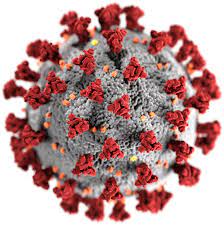In this quarter's blog, two drastic inquiries are probed for readers:
1. What are the cognitive implications of getting COVID-19?
2. Are the vaccine benefits worth the risk?
“Autopsy data from COVID patients in Finland suggests that another major cause of brain damage is lack of oxygen. Particularly worrisome is that several of the patients who were autopsied did not show any signs of brain injury during the course of their COVID infection — yet all had brain damage.”
People mistakenly think of COVID-19 solely as a respiratory virus, but of course oxygen is the key player running every system in our body. Going without enough for any length of time can initiate permanent havoc. According to NIH, “most hospitalized patients do have symptoms related to the brain or nervous system, most commonly including muscle aches, headaches, dizziness, and altered taste and smell. Some people with COVID-19 either initially have, or develop in the hospital, a dramatic state of confusion called delirium. Although rare, COVID-19 can cause seizures or major strokes. Muscular weakness, nerve injury, and pain syndromes are common in people who require intensive care during infections.” (Courtesy of NIH, March 2021.)
Researchers are still trying to figure out how COVID impacts the brain and other organs long-term, but as Dr. Budson points out, “It is clear that COVID can cause brain damage by direct infection (encephalitis), by strokes, and by lack of oxygen.”
While many cases can be severe, some are mild. Should you still worry about cognitive health in mild cases? COVID attaches to cells in a unique way, and sometimes, that can cause veins and arteries in the brain to become weak.
“Breaks in small blood vessels have caused bleeding in the brain (so-called microbleeds) in some people with COVID-19 infection. Studies in people who have died due to COVID-19 infection show leaky blood vessels in different areas of the brain that allow water and a host of other molecules as well as blood cells that are normally excluded from the brain to move from the bloodstream into the brain. This leak, as well as the resulting inflammation around blood vessels, can cause multiple small areas of damage. COVID-19 also causes blood cells to clump and form clots in arteries and veins throughout the body. These blockages reduce or block the flow of blood, oxygen, and nutrients that cells need to function and can lead to a stroke or heart attack.” (Courtesy of NIH, March 2021.)
While people may experience mild symptoms, the aftermath of residual fatigue and “brain fog” can also be telling of how this virus manifests cognitively. Dr. Budson expands in his March 2021 article, “What is COVID brain fog - and how can you clear it?”:
“So-called long haulers can have other lingering symptoms including fatigue, body aches, inability to exercise, headache, and difficulty sleeping. Some of these problems may be due to permanent damage to their lungs, heart, kidneys, or other organs. Damage to these organs — or even just the symptoms by themselves — can impair thinking and memory and cause brain fog.”
While many have experienced mild cases of COVID, it is still imperative for people to listen to their bodies. This pandemic has stolen so much already that not taking proper steps to properly recover could cause more harm to rob individuals of their own right minds.
While I would never presume to provide advice, Dr. Robert H. Shmerling addresses two common misconceptions of the vaccine in his article, “COVID-19 Vaccines: Safety, Side Effects — and Coincidence” also published by Harvard Health/Medical February 2021. One is how people assume injection includes samples of a live virus, and therefore, might cause COVID. This is not the case. If one contracts COVID around the vaccination, it is highly likely exposure was prior to vaccination, or there was not sufficient time to build resistance.
Another common misconception involves reports of new health concerns post vaccination. While it’s possible this can occur, the odds are typically coincidental.
“But Denise, the vaccine will alter my DNA.” No, your unique code is established from conception. “mRNA from the vaccine never enters the nucleus of the cell and does not affect or interact with a person’s DNA.” (Courtesy of the CDC, March 2021) Dr. Anthony Kamaroff (Harvard Health Publishing/Medical School) expands upon mRNA in his December 2021 informative article, “Why are mRNA vaccinations so exciting?”
NIH states, “Almost everyone should get the COVID-19 vaccination. It will help protect you from getting COVID-19. The vaccines are safe and effective and cannot give you the disease. Most side effects of the vaccine may feel like flu and are temporary and go away within a day or two… Consult your primary care doctor or specialist if you have concerns regarding any pre-existing known allergic or other severe reactions and vaccine safety.”
In the grand scheme of things, it is everyone’s choice. In Denise’s world (among many neurologists) of seeing how millions in the US alone are impacted so drastically by forms of dementia like Alzheimer’s already, it is well worth the vaccination to do everything possible to protect your cognitive health. After all, if you have a brain, you’re at risk!
More information here at https://covid19.nih.gov/ and http://alz.org.
#COVID19 #CovidVaccine #CognitiveHealth #EndAlz #CovidandtheBrain #Neurologists #COVID



 RSS Feed
RSS Feed